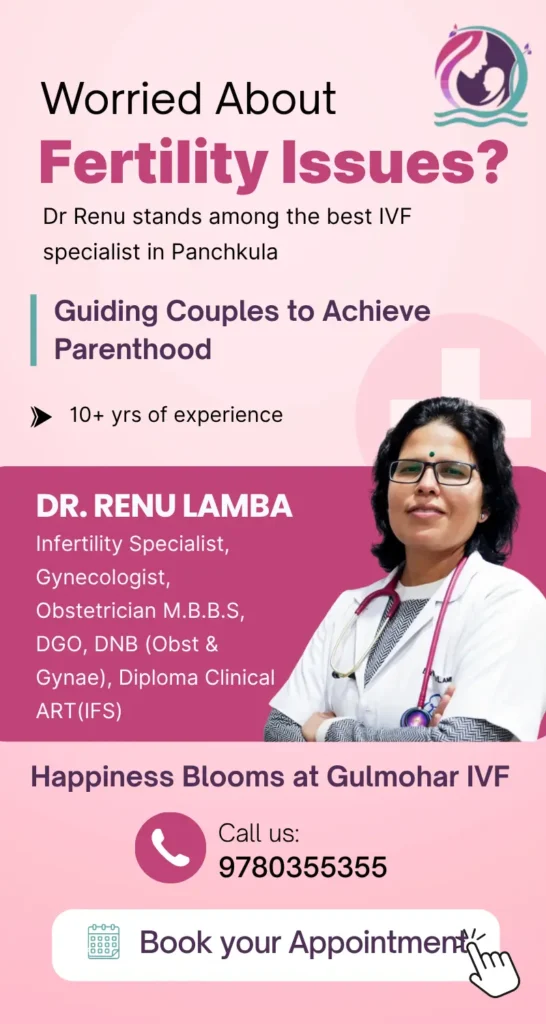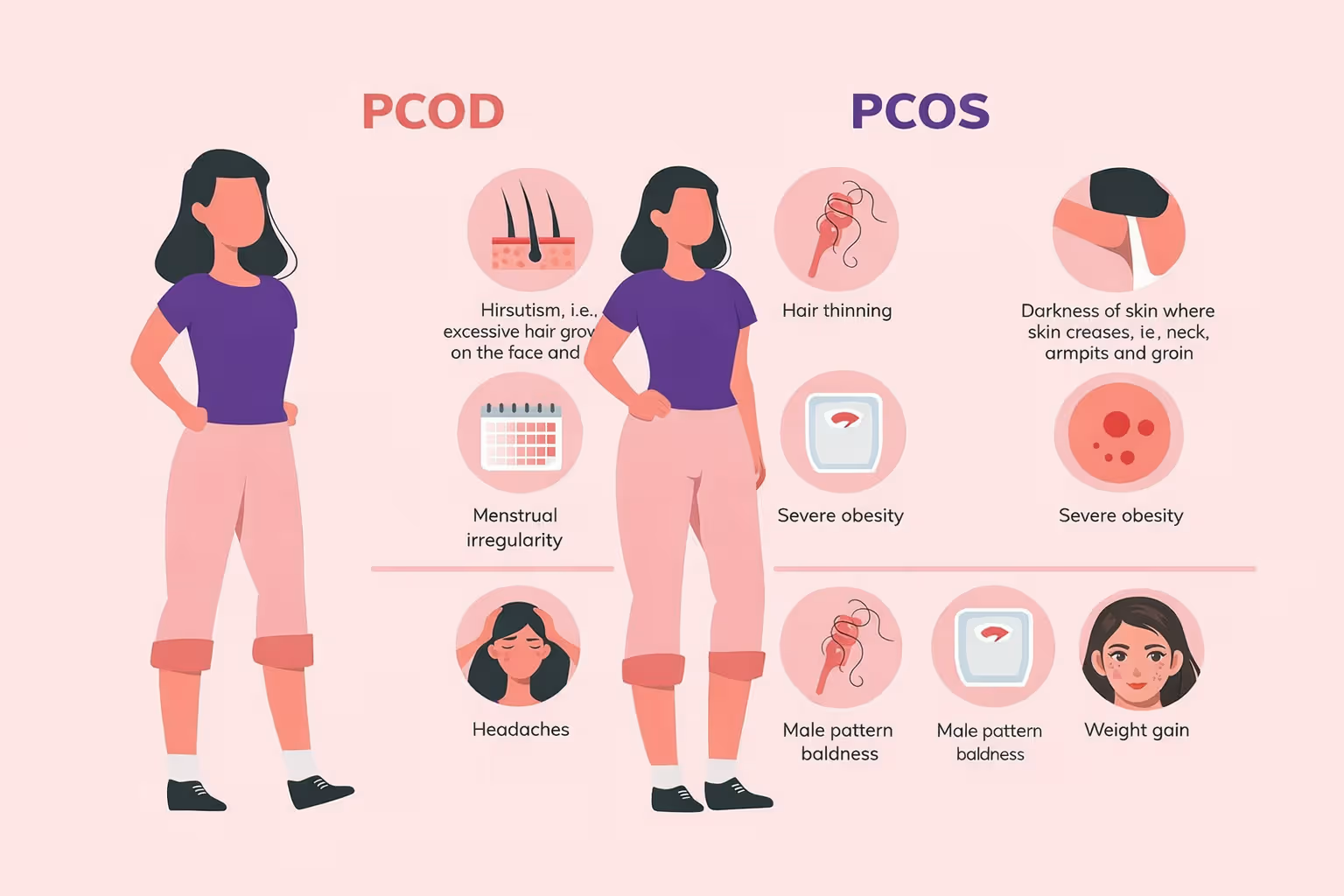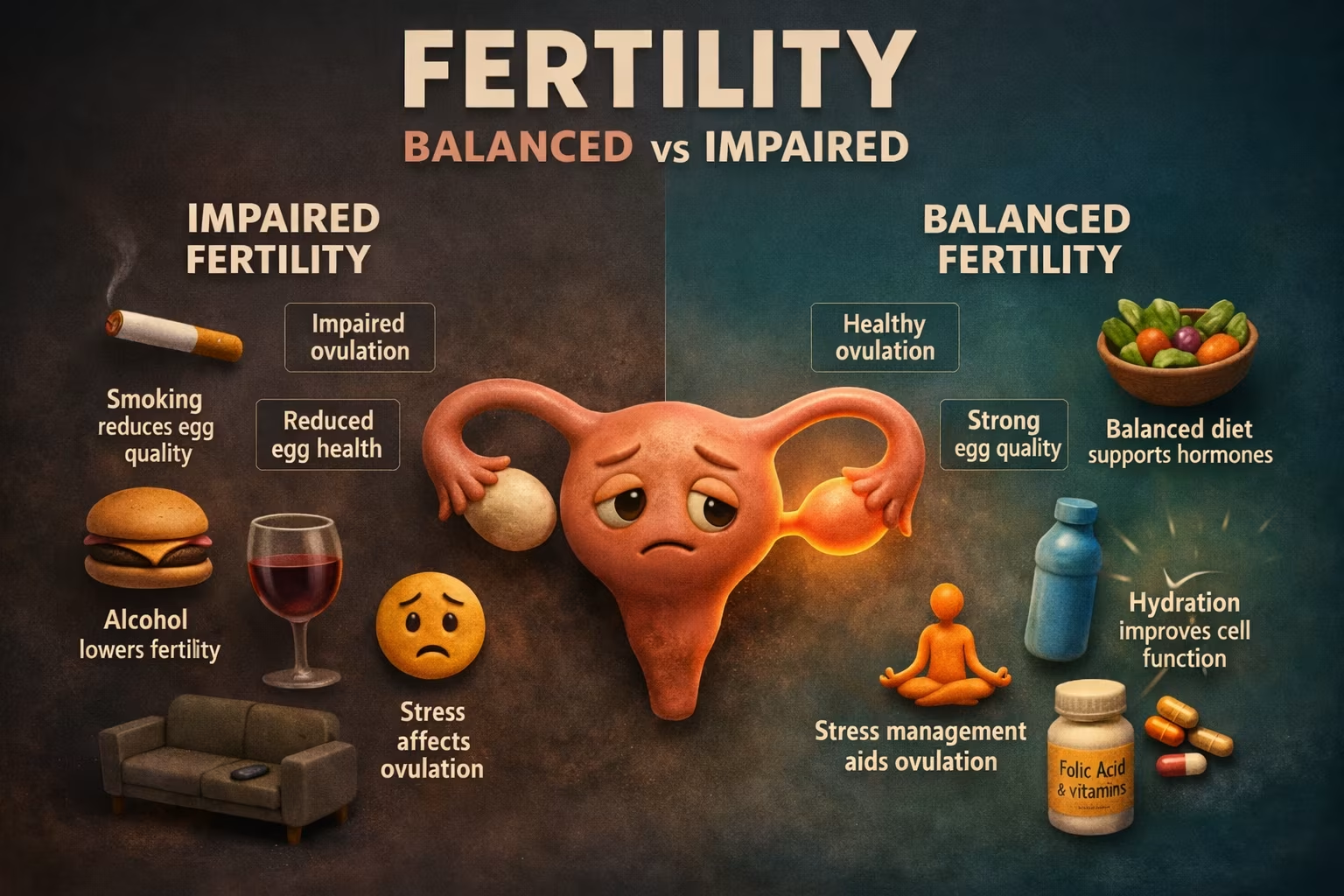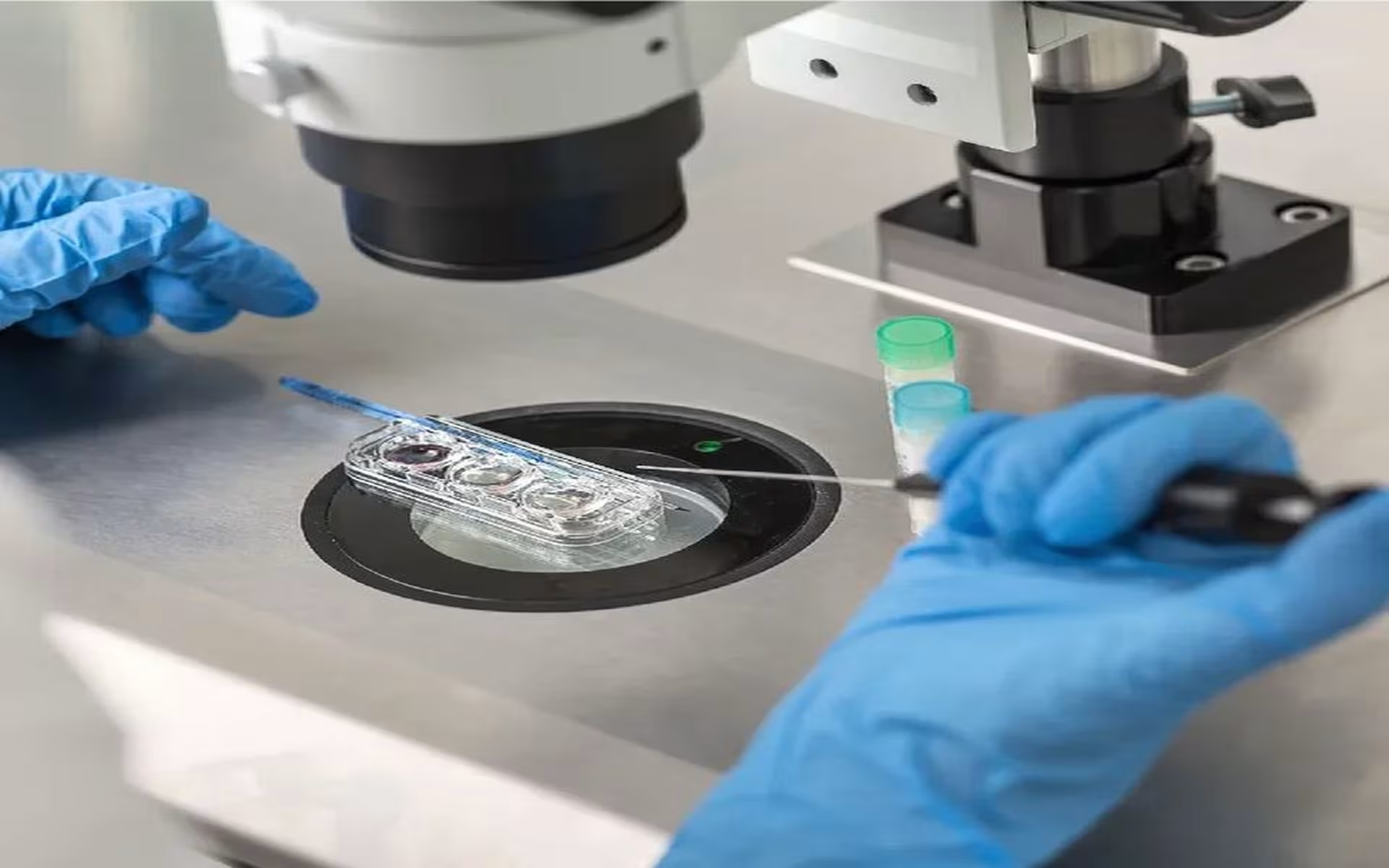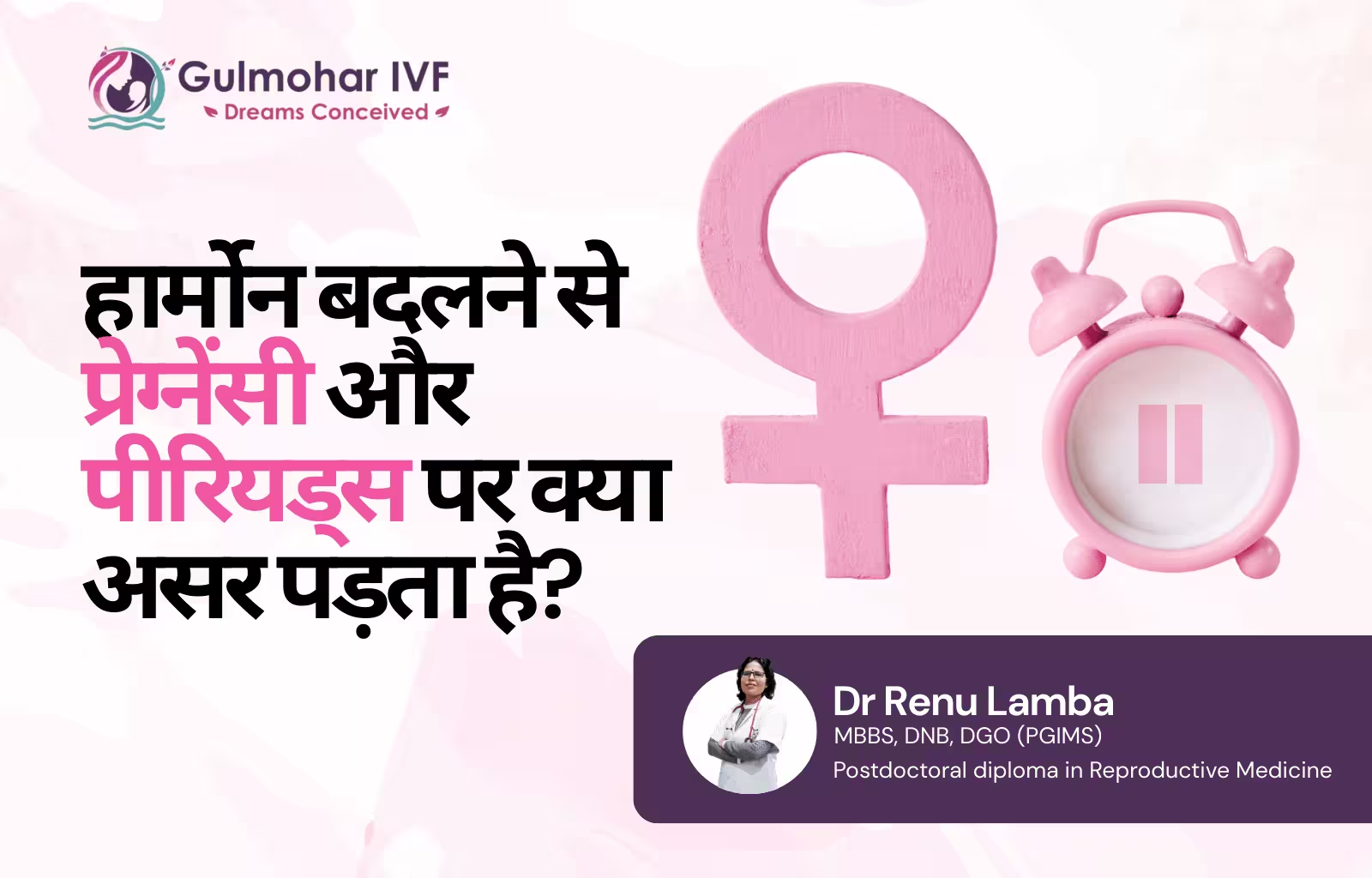Your Lifestyle Matters More Than You Think
When couples begin IVF treatment, they often focus on medical steps like hormone injections and embryo transfer. But one critical factor is often overlooked—your daily habits.
At Gulmohar IVF, Panchkula, we emphasize that lifestyle choices can significantly affect IVF outcomes. From diet to sleep, what you do outside the clinic can support (or sabotage) your chances of success.
1. Nutrition: What You Eat Directly Impacts Reproductive Health
A balanced, nutrient-rich diet improves egg and sperm quality, hormone balance, and uterine receptivity.
Fertility-Friendly Foods:
- Leafy greens (palak, spinach): Provide folate for egg development
- Berries and fruits: High in antioxidants to reduce cell damage
- Nuts & seeds: Contain healthy fats, zinc, and selenium
- Whole grains: Regulate insulin and support hormonal balance
- Lean proteins (dal, paneer, eggs): Essential for egg and embryo development
Foods to Limit or Avoid:
- Processed snacks and junk food
- High-sugar beverages
- Excess salt and refined carbs
- Excess caffeine (limit to 1 cup/day)
💡 Related Read: Learn Natural Ways to Boost Fertility Before Starting Treatment
2. Weight & Body Mass Index (BMI): Balance is Key
Being underweight or overweight can both reduce IVF success.
- Overweight women may produce fewer quality eggs and have hormonal issues.
- Underweight women may experience irregular periods or implantation issues.
- Men with high BMI may have reduced sperm count and motility.
Ideal BMI for IVF: 18.5 – 24.9
Tip: Aim for gradual, sustainable weight changes 3–6 months before IVF treatment.
3. Exercise: Moderate Movement Improves Blood Flow and Reduces Stress
Exercise helps maintain a healthy weight, reduce stress, and improve blood circulation to reproductive organs.
- Choose moderate, low-impact exercises like walking, yoga, or swimming.
- Avoid high-intensity workouts, especially during ovarian stimulation or post-embryo transfer.
Recommended:
- 30 minutes/day of gentle physical activity
- Yoga for fertility (focus on pelvic and breathing exercises)
4. Stress: A Hidden Fertility Disruptor
Stress can negatively impact hormones like cortisol and prolactin, which interfere with ovulation and implantation. IVF itself can be emotionally overwhelming—so managing stress is crucial.
Effective Stress-Relief Techniques:
- Deep breathing, guided meditation
- Journaling or spiritual practices
- Gentle stretching or fertility yoga
- Talking to a counselor or fertility coach
💡 Gulmohar IVF offers emotional wellness support to help patients through the IVF journey.
5. Sleep & Rest: The Body Heals and Rebalances at Night
Poor sleep quality affects your body’s ability to produce and regulate reproductive hormones.
- Aim for 7–9 hours of sleep each night
- Avoid screens 1 hour before bedtime
- Stick to a regular sleep-wake cycle
Sleep hygiene supports better IVF outcomes by improving egg quality, sperm health, and stress levels.
6. Smoking, Alcohol & Caffeine: Cut Them Down or Quit
Toxins from tobacco and alcohol reduce fertility in both men and women.
- Smoking damages egg and sperm DNA, reducing fertilization and increasing miscarriage risk.
- Alcohol disrupts hormone levels, impacting implantation and embryo quality.
- Caffeine in excess can reduce conception rates.
Recommendations:
- Quit smoking completely
- Avoid or strictly limit alcohol
- Keep caffeine intake under 200 mg/day (about one regular cup)
7. Supplements: Helpful When Taken Right
After fertility testing, your doctor may recommend pre-treatment supplements to enhance fertility:
- Folic Acid (400–600 mcg): Prevents neural tube defects
- Vitamin D: Regulates reproductive hormones
- CoQ10: Improves egg and sperm mitochondrial energy
- Omega-3 fatty acids: Support embryo development
Always consult your fertility doctor before starting any supplement.
💡 Related Read: Wondering what else affects IVF outcomes? Read Success Factors in IVF: Lifestyle, Age & Medical Factors
How Long Before IVF Should You Make These Lifestyle Changes?
Ideally, start at least 2–3 months before your IVF cycle. This gives your body enough time to reset, heal, and prepare for the treatment ahead.
Even small changes today can lead to major improvements tomorrow.
Final Thoughts: Your Habits Shape Your IVF Journey
IVF is not just a clinical procedure—it’s a whole-body process. While modern medicine can support conception, your lifestyle plays an equal role.
At Gulmohar IVF, Panchkula, we don’t just offer treatment—we offer a plan that includes:
✔ Fertility nutrition guidance
✔ Stress management strategies
✔ Personalized IVF preparation
📍 Location: Panchkula, Haryana
📞 Call Us: 91 9780 355 355
📅 Book Your IVF Readiness Consultation
📢 Stay informed. Follow our blog for more insights on fertility, IVF, and reproductive wellness.
FAQ Section: Lifestyle and IVF Success
1. Can lifestyle really affect IVF results?
Yes, it affects egg and sperm quality, hormone balance, and uterine health, all of which impact IVF success.
2. Should I exercise during my IVF cycle?
Light activity is fine, but avoid heavy workouts during stimulation and after embryo transfer.
3. How does sleep impact fertility?
Poor sleep affects reproductive hormones and increases stress, both of which can reduce IVF success.
4. Do men also need to make lifestyle changes for IVF?
Absolutely. Sperm quality is affected by diet, stress, alcohol, and smoking—just like egg quality in women.
🔒 Disclaimer
This article is for informational purposes only and does not replace professional medical advice. For diagnosis and treatment, consult a qualified fertility specialist..



